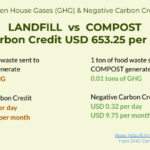Revolutionizing Sustainability: Grease Trap Waste Recycling for a Cleaner Future
Introduction to Grease Trap Waste
 Grease trap waste, a byproduct of commercial kitchens, has long posed environmental challenges due to its composition and disposal methods.
Grease trap waste, a byproduct of commercial kitchens, has long posed environmental challenges due to its composition and disposal methods.
However, innovative solutions are emerging to tackle this issue head-on through grease trap waste recycling.
This article explores the significance of grease trap waste, the environmental impact of traditional disposal methods, and the promising strides being made in recycling technology.
The Challenge
Grease trap waste is a mixture of fats, oils, and grease (FOG) that accumulates in the plumbing systems of restaurants and other food service establishments. Improper disposal of this waste can lead to severe consequences such as blocked sewer lines, environmental pollution, and increased maintenance costs for businesses.
Environmental Impact
Historically, grease trap waste has been discarded through methods like landfilling or incineration. These practices not only contribute to the depletion of valuable land resources but also release harmful pollutants into the air and soil. The environmental impact of such disposal methods necessitates a shift towards more sustainable alternatives.
Grease Trap Waste Recycling
Recycling grease trap waste presents a game-changing solution to address environmental concerns. Advanced technologies now enable the extraction of valuable components from this waste, including the production of biodiesel. Biodiesel derived from grease trap waste not only reduces the dependency on traditional fossil fuels but also provides a cleaner and more sustainable energy source.
Benefits of Grease Trap Waste Recycling
1. Environmental Conservation: Recycling grease trap waste minimizes its impact on landfills and prevents pollution, contributing to a healthier environment.
2. Renewable Energy Source: Biodiesel produced from grease trap waste serves as a renewable energy source, reducing greenhouse gas emissions and promoting sustainability.
3. Cost Savings for Businesses: Implementing recycling practices can result in cost savings for businesses by avoiding expensive plumbing repairs and disposal fees associated with traditional methods.
4. Regulatory Compliance: As environmental regulations become more stringent, adopting grease trap waste recycling ensures that businesses stay in compliance with evolving environmental standards.
Challenges and Future Outlook
While grease trap waste recycling is a promising solution, challenges such as initial investment costs and the need for widespread adoption still exist. However, as technology advances and awareness grows, the long-term benefits far outweigh these challenges.
Conclusion
The move towards grease trap waste recycling marks a significant step in the journey towards a more sustainable and environmentally conscious future. By embracing innovative technologies and responsible waste management practices, we can transform what was once considered a burden into a valuable resource, contributing to the well-being of both our planet and our communities. Grease trap waste recycling is not just a practical solution; it’s a commitment to a cleaner, greener tomorrow.


